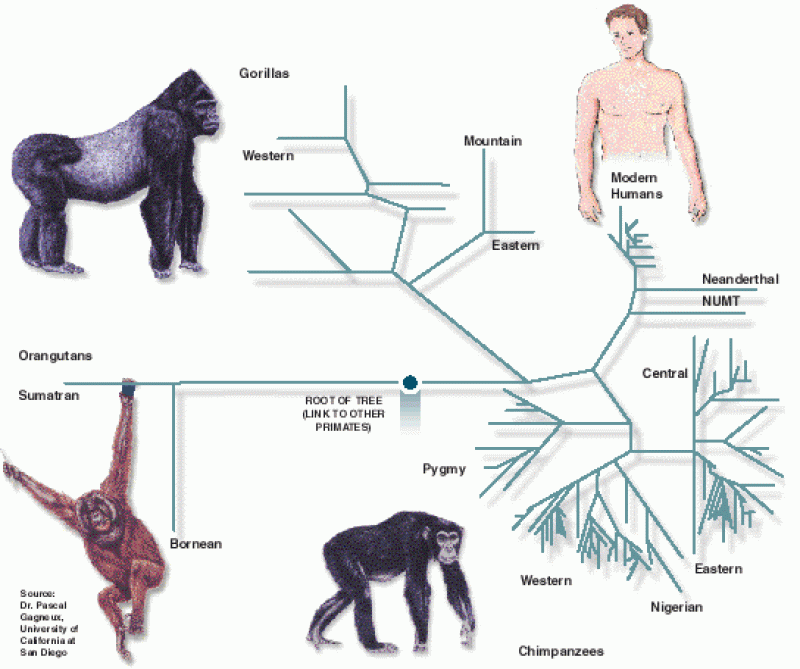A new paper in Science reports high (20-40 percent) derived frequencies for an allele which seems correlated with higher rates of aneuploidy. Anueploidy is bad, because often it results in nonviable offspring (individuals with Down syndrome have a viable anueploidy). The strange thing about this region of the genome is that it looks like modern humans have harbored this variant since the divergence from Neandertals. But, it has not gone to fixation. Its frequency in the intermediate range all this time, segregating in pretty much all populations from what it looks like, suggests balancing selection.
Most of the paper is focused on medical genetics and the genome-wide association. The evolutionary aspect is interesting, but struck me as something of an afterthought. I made some chit-chat with the first author at the Bay Area Population Genomics meeting last December, and he didn’t let on that he had any good idea for why this allele was persisting. So I doubt that the group is wedded to the idea that miscarriage is a strategy for masking paternity and encouraging male investment. I’ve asked around people who work in behavioral ecology and they’re skeptical too. There’s a mystery here, and it’s kind of a big deal in my opinion, but there’s not much clarity.
On Twitter, Vincent Lynch pointed out that the locus in question, PLK4, has been implicated in testes development. So one possible answer that crops up is that it is some form of sexually anatongistic selection. Meanwhile, Greg Cochran posits that we’re seeing some sort of meiotic drive, where there is selection pressure operating on the level of the genome itself (e.g., “selfish genetic elements” type dynamics). These are both plausible to me, and suggest that there needn’t be an explanation rooted in our human uniqueness to answer this particular genomic mystery.
Read full, original article: Human uniqueness is not unique































